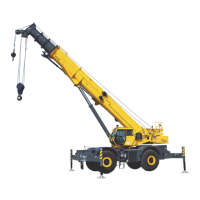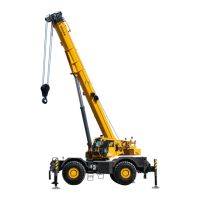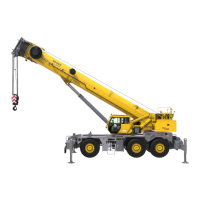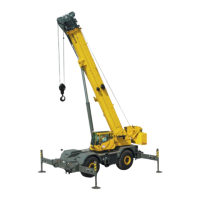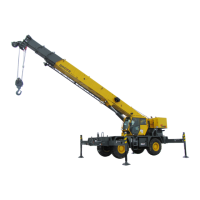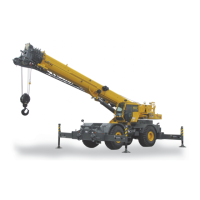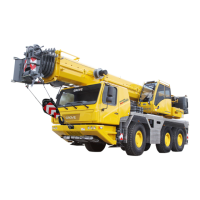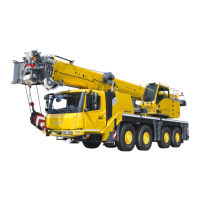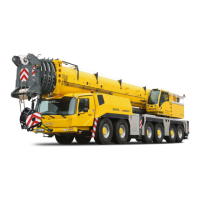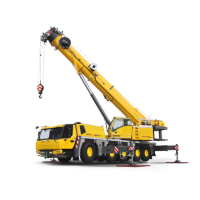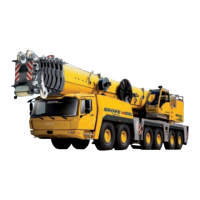Grove Published 3-22-2021, Control # 702-02 4-9
GRT8120 OPERATOR MANUAL OPERATING PROCEDURES
9. Turn the ignition switch clockwise to position II (START)
and release immediately when the engine starts.
Do not push or hold the throttle pedal down. The ECM
automatically provides the proper amount of fuel to start
the engine.
NOTE: The Ignition Switch has an anti-restart feature.
After a failed attempt to start the engine, the crane
control system prevents the engine from cranking
again for approximately six seconds.
10. Warm up engine and all crane components following the
procedures under Crane Warm-up Procedures, page
4-11.
Idling the Engine
Idling the engine unnecessarily for long periods of time
wastes fuel and fouls injector nozzles. Unburned fuel causes
carbon formation; oil dilution; formation of lacquer or gummy
deposits on valves, pistons and rings; and rapid
accumulation of sludge in the engine. These conditions
become worse in colder climates.
NOTE: When prolonged engine idling is necessary,
maintain at least 800 rpm.
Engine High Idle
Idling the engine for long periods of time results in the
degradation of engine oil and damage to engine
components, as described under Idling the Engine, page 4-9.
To reduce these adverse effects, the crane control system
will automatically increase the engine idle speed to
approximately 1200 rpm when the following conditions are
met for a period of 5 minutes:
• Transmission is in neutral
• Parking brake is engaged
• Brake pedal is not pressed
• Engine speed is less than 1125 rpm
• Controllers are not actuated
• Engine coolant temperature is below 71°C (160°F)
• Manual exhaust system cleaning process has not been
initiated
• Automatic exhaust system cleaning process is not active
The crane control system will automatically return the engine
idle speed to its usual setting when one of the following
conditions occur:
• Transmission is shifted to forward or reverse
• Parking brake is disengaged
• Brake pedal is pressed
• Controller is actuated
• Engine coolant temperature rises above 79°C (175°F)
• Exhaust System Cleaning Switch is set to the Manual
Cleaning position
• Exhaust system cleaning process is active
Racing the Engine
DO NOT race engine during warm-up period or operate
beyond governed speed (as might occur in downhill
operation or down-shifting). Engine bearings, pistons, and
valves may be damaged if these precautions are not taken.
Exhaust System Cleaning
The exhaust system cleaning process can take place in
three different modes:
• Passive: Exhaust is hot enough during normal working
operation to burn off the hydrocarbon (soot)
accumulation
•Active: Active cleaning occurs when there is insufficient
heat in the exhaust system to convert all the
hydrocarbon being collected in the exhaust system.
Exhaust temperatures are raised by injecting a small
amount of fuel. The resulting chemical reaction raises
exhaust gas temperatures high enough to oxidize the
hydrocarbon system. This is done without operator
input.
•Manual: Manual, or stationary, cleaning is the same as
active cleaning but takes place when crane is not being
operated. It allows the operator to perform cleaning
outside of the normal duty cycle.
If the exhaust system begins to clog and needs cleaned, the
Engine Exhaust Cleaning Required Indicator comes on in
the Alerts Area of the ODM Main Screen (refer to Alerts Area,
page 4-70).
CAUTION
If the Engine Warning Indicator or the Engine Stop
Indicator is on, immediately stop the engine and correct
the malfunction.
WARNING
Burn/Fire Hazard!
During the cleaning process, the exhaust and tailpipe
become very hot. Keep personnel and flammable objects
away from the exhaust. Do not park vehicle near
flammable objects.
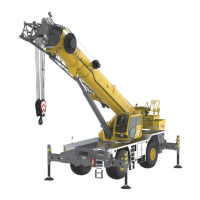
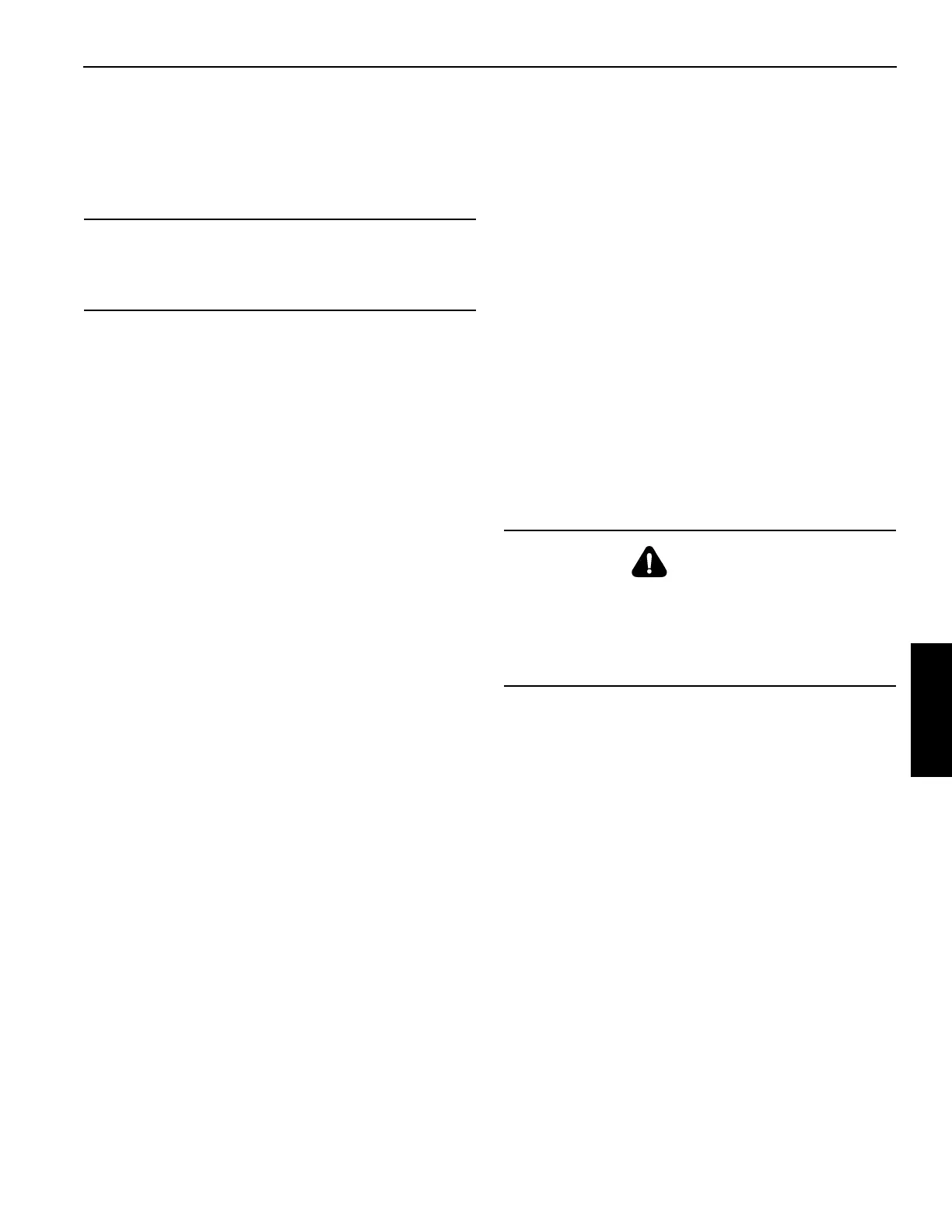